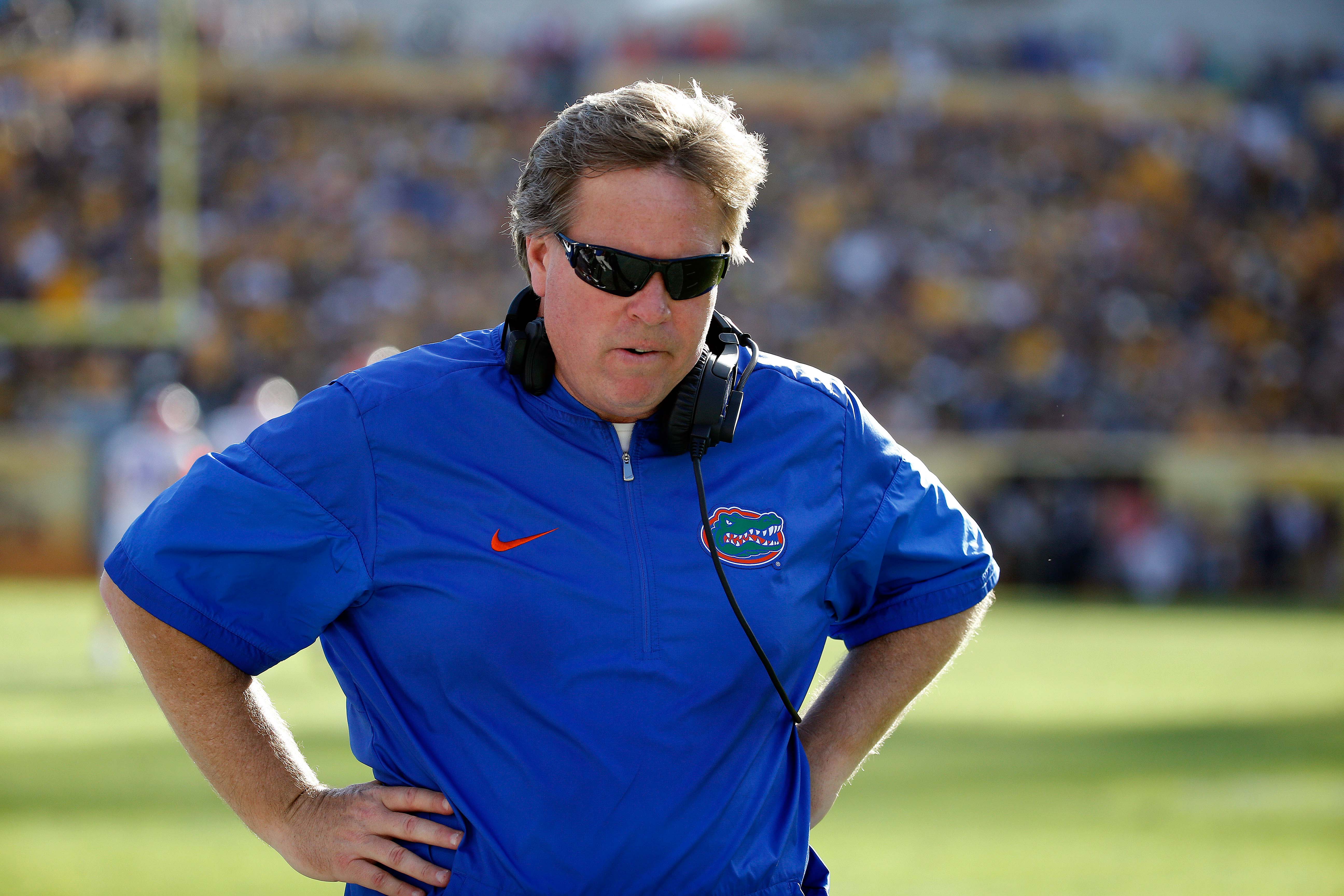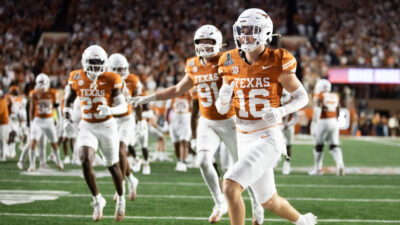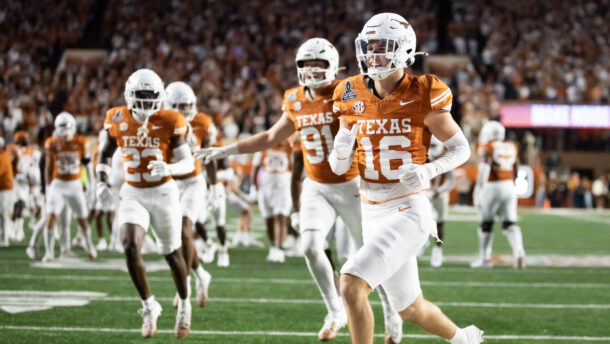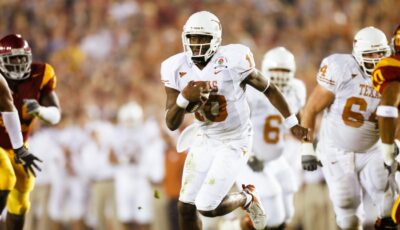
Jim McElwain was hired to fix Florida’s offense and win big. He’s gone because he failed miserably
GAINESVILLE — While the University of Florida debated whether to fire Jim McElwain “for cause” this weekend, the actual cause of his demise as Florida’s head coach was not really in question by the time news began to leak Sunday afternoon that McElwain would be let go as Florida’s head football coach.
The reality? Jim McElwain was brought to Florida to fix a half-decade’s worth of moribund offense, and he failed in that endeavor.
The coach knew he’d failed Saturday evening, when, in a rare moment of candor for a coach who spent nearly three seasons artfully and unartfully dodging questions, he offered genuine analysis and self-referential critique in the bowels of Everbank Field following Florida’s humbling 42-7 defeat to archrival Georgia.
“I know what I was brought here to do,” McElwain said. “We haven’t been good on offense, I get it. We’ve won a few games but haven’t won enough — haven’t won a championship. That’s real. That’s life. That is this business. And I take full responsibility for all of it.”
[table “” not found /]Three years in, the singular failure of Jim McElwain and this coaching staff to fix Florida’s systemic problems on offense had spread like a contagion, infecting every aspect of the Gators program, including the culture.
McElwain arrived with championship offensive credentials and plenty of bluster and bravado, promising results from the podium of his opening press conference, where he bragged that even his dog Clarabelle could run his offense. It’s the kind of remark that’s funny and forgotten if he succeeds, but lingers in the air like a ghastly, weighty specter when you fail. Saturday, as Florida’s flummoxed redshirt freshman quarterback Feleipe Franks floundered his way to 1.5 yards per passing attempt, Clarabelle — or the hope she represented when McElwain was hired — was long gone.

Things started well.
Behind another redshirt freshman quarterback, Will Grier, Jim McElwain’s offense looked to be improving and efficient in roaring to a 6-0 start and a top 10 ranking. It was as impressive a beginning as you could script, given the fact that McElwain’s predecessor, Will Muschamp, had left dominant defensive personnel behind but an offensive cupboard so bare the Gators couldn’t even hold a spring scrimmage in McElwain’s opening campaign due to a lack of able-bodied offensive lineman.
Playmakers were sparse too — only Kelvin Taylor and Brandon Powell jumped off the page — but McElwain and his offensive coordinator Doug Nussmeier had coached Grier up and managed to get young players like freshman wide receiver Antonio Callaway ready to contribute immediately. The future, to quote the late great Gainesville son Tom Petty, was wide open.
Then Grier failed a drug test, was suspended for a year and the walls began to cave in.
Sure, there were initial reasons to be hopeful. McElwain coached the pint-sized Treon Harris to a near-miss at LSU and a fine win over a 10-win Georgia team. McElwain rode a marvelous defense to the SEC East division title, and managed 10 wins from largely the same personnel that had won only 11 games in the two seasons prior under Muschamp. And the 2015 Gators were good enough to be competitive in Atlanta, staying with a score of eventual national champion Alabama until late in the third quarter. But without Grier, there was always a palpable sense that a chance at a special year was lost.
Things became even more troubling when Grier and McElwain met late that year, and Grier announced his intention to transfer. McElwain issued a statement of support, but in the months that followed, there were competing narratives about who was to blame for Grier’s departure, and the Florida head coach wasn’t recruiting well enough to silence those questions or replace a promising young quarterback.

True to his form at Florida, McElwain spoke with bluster and great volume about how facilities were crushing the Gators in recruiting, but even as the Florida administration and athletic association began to cave to his demands about bulking up support staff, building an indoor practice facility, fixing the weight room and building a new football facility, blue chips were slow to sign. McElwain signed only 14 4- or 5-star recruits his first two seasons on campus.
Rivals Florida State and Georgia signed 32 and 27 each in those periods. It’s hard to reinvigorate a dying offense without a strong quarterback and elite playmakers, especially in Nussmeier’s pro-style scheme.
Behind another astonishing defense, Florida won 9 more games in McElwain’s second year, including a never-in-doubt win over a Kirby Smart Georgia team with very similar personnel to the team that beat the Gators by 35 Saturday. But the Gators were once again crushed by rival Florida State, and when they returned to Atlanta a week later, they were thoroughly outclassed by Alabama, 54-16. Transfers Luke Del Rio and Austin Appleby hadn’t provided the answers McElwain needed on offense, and with colossal defensive personnel losses coming, the Gators appeared to be backsliding.
Then, following a much-needed dominant Outback Bowl win, McElwain oddly questioned “the commitment of our administration” in his postgame interview.
Florida used the bowl game momentum to sign McElwain’s best recruiting class, but the moment rubbed new athletic director Scott Stricklin the wrong way, creating acrimony between the head coach and Stricklin that boiled over in the wake of McElwain’s “death threat” comments this week.
When Stricklin, a former sports information director who understands the value of language, authorized a university athletic association statement noting “McElwain offered no additional details” in regard to the alleged death threats, the dye had been cast. By openly questioning the veracity of the school’s head coach, Stricklin was laying the groundwork to separate the school from McElwain.
Had McElwain approached the job with more humility and candor, perhaps the Gators’ administration and fans might have been able to deal with another year of McElwain, who did, after all, win two SEC East titles with players Muschamp struggled to qualify for a bowl game.
But it’s one thing to accept a defense struggling some due to injuries, massive NFL personnel departures, suspensions and recruiting misses.
It’s quite another to deal with a program plagued by culture questions in the aftermath of a tenth of the players it has on scholarship getting suspended for attempting to defraud both private citizens and the University of Florida thousands of dollars.
And it’s quite another still to watch the offense McElwain was hired to fix mired in the post-Tebow, Will Muschamp mud for the eight-consecutive football season.
The merits and risks of firing McElwain for cause, is a worthwhile and important debate.
But whether Stricklin and UF decide to litigate the termination of McElwain “for cause,” or ultimately reach a settlement and pay a portion of the $12.6 million buyout, the cause of McElwain losing his job Sunday is beyond debate.
He was hired to fix the offense and win championships. He did neither.
Neil Blackmon covers Florida football and the SEC for SaturdayDownSouth.com. An attorney, he is also a member of the Football and Basketball Writers Associations of America. He also coaches basketball.







